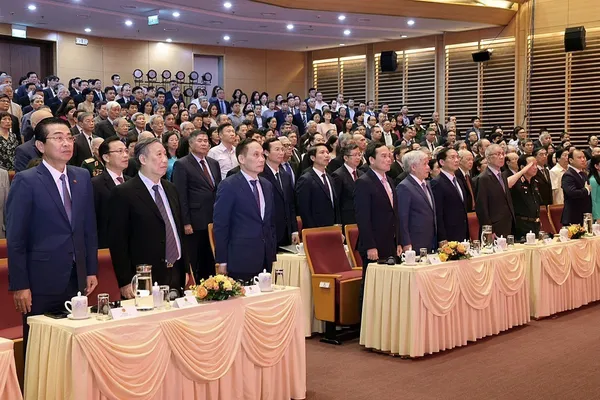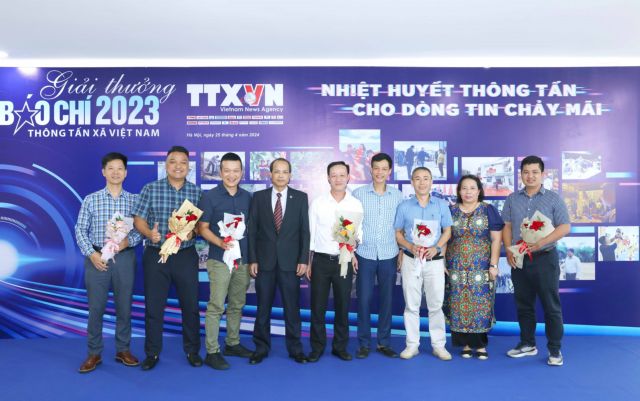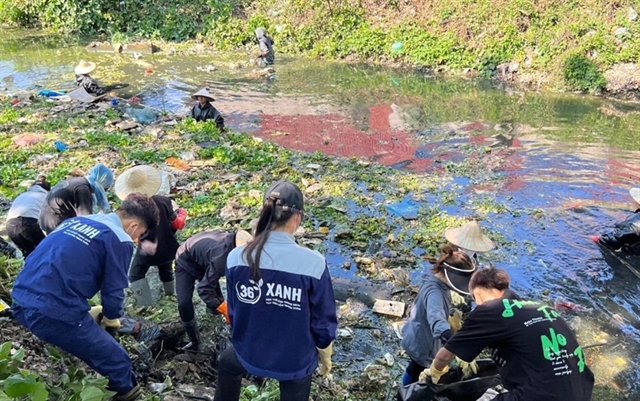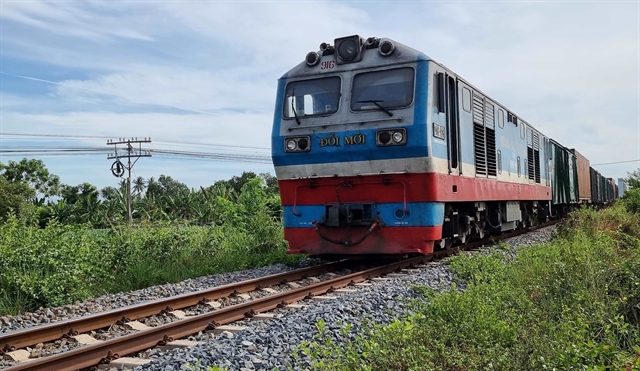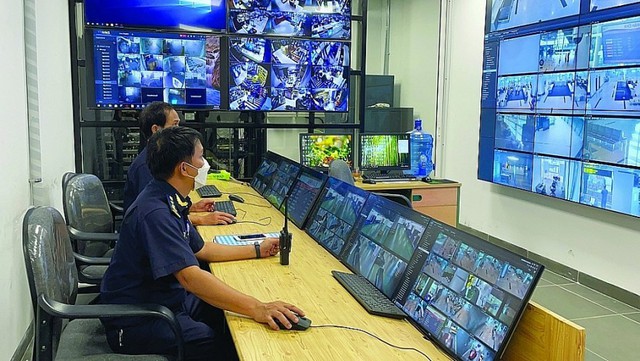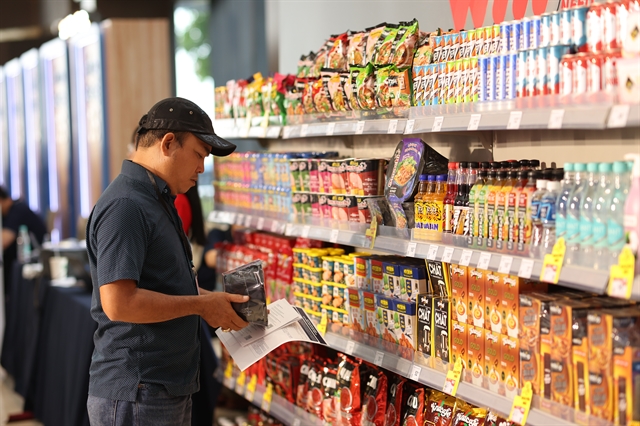 Economy
Economy
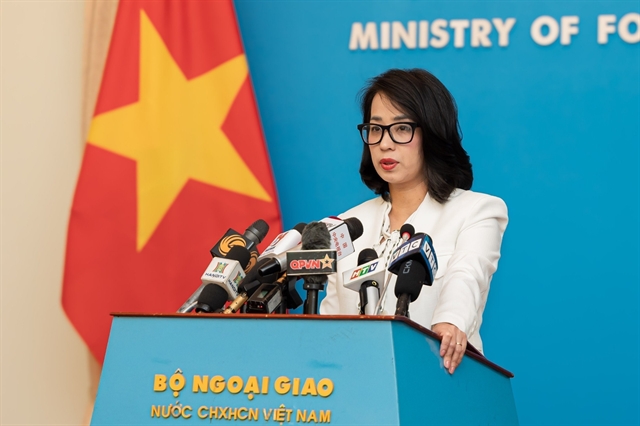
Sustainability has remained a top priority for the mining industry and the Government.
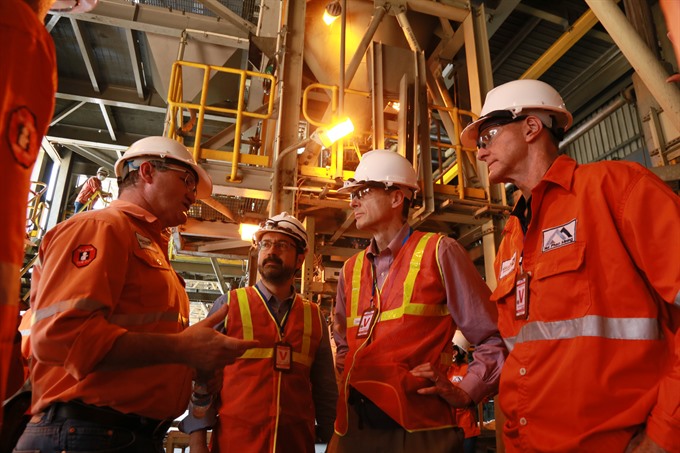 |
| APEC delegates visit a production line in Núi Pháo mine owned by Masan Resources in Thái Nguyên Province’s Đại Từ District. — VNS Photo |
By Hoàng Nguyên
THÁI NGUYÊN — Sustainability has remained a top priority for the mining industry and the Government.
The topic has also been much discussed over the years by experts and specialists in the field, including from the APEC Mining Task Force (MTF), which was established in 2007.
It was again on the agenda at the APEC Mining Policy public-private dialogue held as part of the second APEC Senior Officials Meeting (SOM 2) in Hà Nội recently.
One of the questions asked was: Can mining companies change the negative image of their industry as one that leaves social and environmental scars and achieve sustainable growth?
The answer is yes if they can communicate the value of mining to targeted communities and optimise socio-economic benefits to boost sustainable community development.
One of the ways to do this is through corporate social responsibility (CSR) programmes.
The Government constantly encourages enterprises to deliver on CSR and make it a key to gain a competitive edge.
In his closing speech at the fifth plenary meeting of the 12th Communist Party of Việt Nam Central Committee in Hà Nội, General Secretary Nguyễn Phú Trọng had stressed the need to comply with CSR laws.
CSR is especially important for mining companies given the industry impacts surroundings and local communities.
According to Nguyễn Quang Vinh, deputy general secretary of the Việt Nam Chamber of Commerce and Industry, CSR programmes are highly beneficial for all companies.
If they realise that, then they would be very successful and could achieve sustainable growth, he said.
Nguyễn Minh Đường, chairman of the Việt Nam Association of Mineral Processing, said no company can survive without fulfilling its responsibilities to the local community.
After realising the importance of CSR, some companies have begun to engage in community development activities.
Lưu Ngọc Anh of Việt Nam Apatit Limited Company said during its 60 years of operation his company has contributed billions of đồng to build new schools and participated in building new-style rural areas.
Nguyễn Văn Châu, deputy director of Bỉm Sơn Cement Co, said his company always tries to give back to the community and pays taxes and fees.
Another example is Masan Resources which owns the polymetallic Núi Pháo Mine in Thái Nguyên Province’s Đại Từ District.
The mine, which has one of the world’s largest identified tungsten reserves of 66 million tonnes, was visited by 21 APEC delegates, including some from the APEC mining task force, after the dialogue meeting.
The delegates were impressed most by what Masan has done for the local community.
It has provided jobs to people whose lands were acquired. They in fact account for 56 per cent of the company’s employees, while nearly 20 per cent are from six ethnic minorities.
Vũ Hồng, deputy general director of Masan Resources, said the company always prioritises locals when hiring staff.
“We are committed to providing vocational training to local people.”
He added that 230 people from families whose lands had been acquired had been trained for 18 months and paid US$150 per month during the training.
Masan has the highest rate of women employees in the mining sector: 24 per cent.
“This is quite high and surprising to me because even in developed countries like Canada and Australia, this rate is usually below 20 per cent,” an APEC delegate from the Philippines, who is also a researcher in the mining sector, said during the site visit.
The company has established an economic restoration programme to create livelihoods for local people.
Under it, six enterprises and co-operatives have been set up, including a packaging firm by Định Thị Hải Thùy, a former Núi Pháo employee.
Last year, her firm, which sells packaging to six mines in the country and exports to Japan and Korea, earned profits of VNĐ9 billion ($396,500). It employs 90 workers.
A Papuan delegate was very impressed by her company “This is more than I expected. The size of the business will have a big and positive impact on the community.” — VNS

